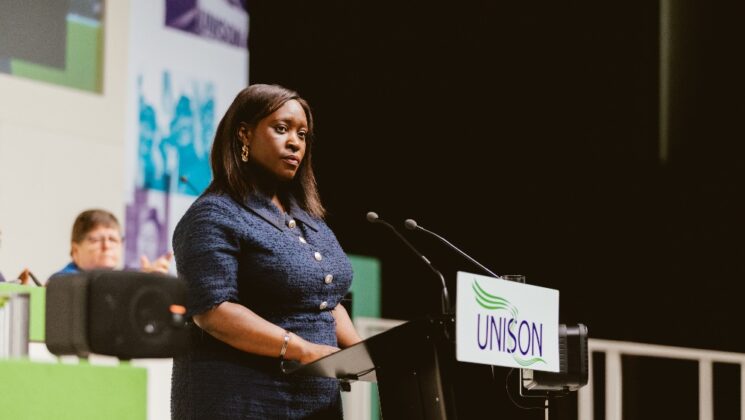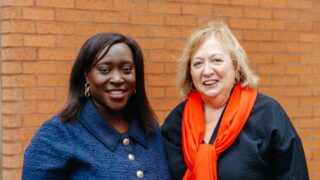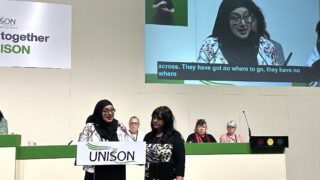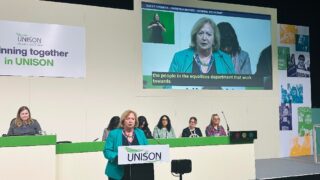Women’s health at work was a key focus of UNISON’s national women’s conference, held in Brighton last week.
Delegates passed motions with a specific focus on reproductive health, including one that called on the union to investigate and report on the needs of women workers in relation to endometriosis, menopause and menstruation.
Another motion called on the union to campaign for paid leave for pregnancy loss. During the debate, several speakers shared their experiences at work after suffering miscarriages. One delegate described her line manager as saying to her: “Why are you crying? It wasn’t a real baby, just cells”.
Conference also passed a motion on Black women’s maternity care, which urged UNISON to work closely with Maternity Action to improve and protect maternity care for Black women, who are five times more likely to die in childbirth or shortly afterwards than white women, and at a 40% increased risk of experiencing a miscarriage.
Racism in healthcare was a key feature of the speech delivered by Abena Oppong-Asare MP (pictured above), the shadow minister for women’s health and mental health, on the final day of conference.
Ms Oppong-Asare, the Labour MP for Erith and Thamesmead, was previously a UNISON workplace steward and former women’s officer for the Greater London Authority. She told delegates: “Women of colour face racism in health services. As staff within the NHS, women of colour face racism. As patients, we face racism”.
She went on to cite a recent Observer report that found “deeply ingrained medical misogyny and racial biases are routinely putting people in need of treatment at risk, the government’s patient safety commissioner in England has warned”.
The NHS safety chief Dr Henrietta Hughes has said neonatal assessment tools and pulse oximeters “work less well for darker skin tones’.
Ms Oppong-Asare also spoke about the importance of employers understanding the menopause. “Thirteen million of us are affected by menopause by an average age of 51, yet employers fail to recognise it, the treatments are in short supply, women are mocked and dismissed, and the risks of endometrial cancer increase.”
Outlining Labour’s plans to improve “the health of the nation”, she said: “When the next Labour government starts to get the NHS back onto its feet, after a decade on the floor, we will need to root out racism in the health system, challenge attitudes, stand up to power, reform education and training, recalibrate diagnostics and treatments to include everyone and create systems which recognise women’s health needs, and not assume the ‘typical’ NHS patient is a white man”.
The next Labour manifesto will contain a pledge to tackle health inequalities and create “a fairer Britain, where everyone lives well for longer”.
Ms Oppong-Asare said: “Someone like me, a Black working-class woman, has as much right to a long, healthy life as a white, middle-class man.”
Her speech also outlined Labour’s new child health action plan, which includes measures to:
- cut waiting times for paediatric services
- deliver 700,000 extra urgent dental appointments per year
- ban vapes from being branded and advertised to appeal to children
- put a free breakfast club in every primary school.
Both of Ms Oppong-Asare’s parents have worked in NHS mental health services. She told conference: “They say it’s never been as bad as today”, before sharing Labour’s plans to tackle the crisis in mental health services for children and young people by “recruiting thousands more staff and putting specialist mental health support for children into every school.
“And we will pay for it by abolishing tax loopholes for private equity fund managers and tax breaks for private schools.”
Closing her speech to a standing ovation from women’s conference delegates, Ms Oppong-Asare said: It is time to restore our National Health Service, free at the point of use, available to all. Time for social justice. Time for equality. Time to let the next generation grow tall”.






